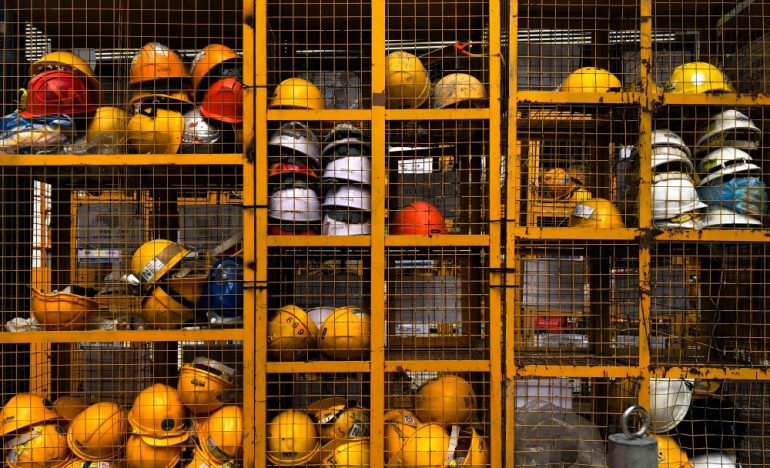What does an IOM report reveal?
According to a report by the International Organization for Migration (IOM), migrant workers are taking on more dangerous jobs, thus facing a greater risk of death and non-injury.
The exhibition "Accidents at work for migrant workers" compiled by the Global Migration Data Analysis Center (GMDAC) highlights that migrant workers are exposed to hazardous jobs such as construction, mining and agriculture compared to non-migrants.
The report highlights the need for better data on other migrant safety measures, including occupational safety and health of migrant workers around the world.
They are also more likely to have jobs in informal employment (unpaid work in the family business, seasonal employment, uninsured work), where the risks are even greater.
The report notes, however, that the lack of data limits the recording and addressing of these risks.
Exposed to the coronavirus
Immigrants' living and working conditions increase the likelihood of exposure to the coronavirus, as the report shows, as migrants appear to be working in the front lines, in critical jobs and other basic jobs that cannot be done remotely.
"His pandemic COVID-19 has revealed how necessary but also marginalized migrant workers are ", said Frank Laczko, IOM GMDAC Director. "But while their work has been deemed vital, they are often invisible to the data and therefore excluded from protection at work."
An estimated 164 million migrant workers make up almost 5 percent of the world's workforce and play a key economic role in both sending and host countries.
They play critical roles in destination countries, such as in healthcare and remittances sent home by migrant workers, boosting national economies by up to 40 percent of their GDP.
The cost
While labor migration pushes socio-economic development, it can have significant personal costs. The number of fatal occupational injuries was higher among migrants than among native-born workers in 73 percent of countries where data were available, according to the International Labor Organization (ILO).
The findings are particularly worrying given the obstacles for migrants trying to report the incidents.
Every year, tens of thousands of people die abroad while working, very often from preventable causes.
Families who mourn can be devastated financially while struggling to find out what happened. They often have to go through complicated bureaucracies to repatriate the remains of loved ones.
"Better data is urgently needed to ensure that migrants' rights are respected as they work in key sectors," Laczko said. "We can not adequately protect those at risk - including families left behind - without the necessary information".
Various countries regularly publish accident statistics. In many countries, employers are empowered by law to report all accidents and deaths that occur at their workplaces to the designated state authority, and information is also obtained through labor inspections.
The deaths of undocumented migrant workers are generally included in the data.
in.gr
